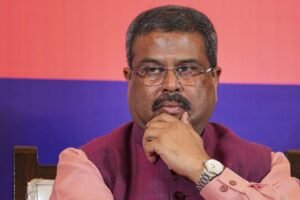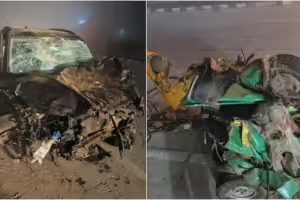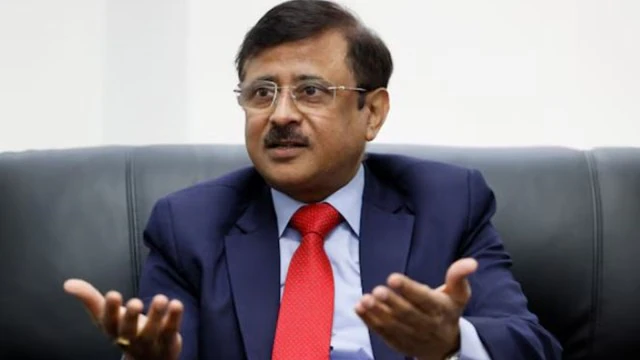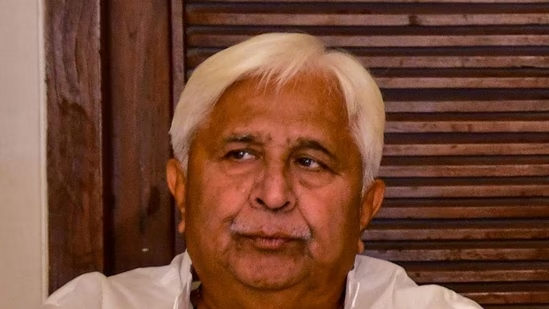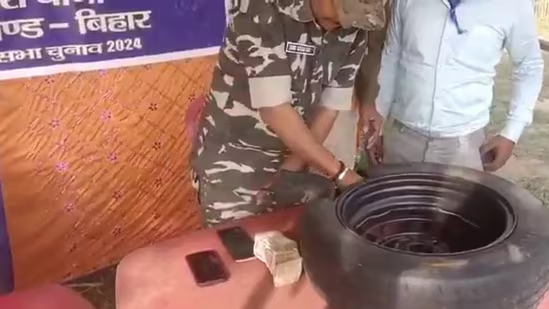Verma, in an interview with CTV News broadcast on Sunday, raised doubts about the Canadian police’s political neutrality and accused Trudeau of damaging relations with India. Additionally, he claimed that “certain G7 nations” have been involved in extrajudicial killings.
Indian High Commissioner Sanjay Kumar Verma expressed concerns over the relationship with Canadian Prime Minister Justin Trudeau and his team, citing a lack of trust. He highlighted the continuous support given to Khalistan separatists, labeling them as significant assets of the Canadian intelligence agency, as he returned to India following New Delhi’s dismissal of allegations connecting him to the killing of Hardeep Singh Nijjar.
Verma, in an interview with CTV News broadcast on Sunday, raised doubts about the Canadian police force’s political neutrality, accusing Trudeau of damaging the rapport with India. Furthermore, he alleged that “certain G7 nations” have been involved in extrajudicial killings.
Verma emphasized that despite the absence of any evidence from the Canadians regarding their accusations against India in the Nijjar case, Canada will continue to be a friend of India. He also stated that the “non-political” aspects of the bilateral relationship would not be significantly affected.
He questioned the absence of evidence in the case, suggesting political motives behind it. He also raised concerns about potential legal implications for Mr. Trudeau and his associates if they are aware of the situation but fail to initiate legal proceedings through the judicial system.
He was questioned about his actions, to which he responded by stating, “In my role as the High Commissioner of India, I have never engaged in any activities… Do we seek to understand the actions of pro-Khalistani groups in Canada? Absolutely. That is my country’s interest. It is my primary focus in relation to Canada, a country attempting to undermine Indian sovereignty.
Verma was questioned about any potential illegal activities, to which he responded by emphasizing the transparency of their actions. He stated that everything they do is out in the open and not hidden. Verma explained that they stay informed by reading newspapers, understanding Punjabi, analyzing statements, and interpreting social media posts to gather information.
He stated emphatically that the Government of India has never targeted any of these individuals, affirming this with full responsibility.
He expressed his stance on Nijjar’s murder, stating, “Every murder is unequivocally reprehensible. I condemn it wholeheartedly. Let’s delve into the core of the matter. However, to fully unravel the situation, there must be a mutual exchange of evidence. Isn’t that standard practice in extradition proceedings?
He expressed his stance on extrajudicial killings by emphasizing that such acts should not take place under any circumstances globally. Without delving into specifics about certain G7 nations that have engaged in such activities, he stressed the importance of avoiding double standards. Highlighting the commitment of the largest democracy in the world, he affirmed that no extrajudicial executions would be conducted within its borders.
He commented on the US indictment concerning the purported conspiracy against pro-Khalistan activist Gurpatwant Singh Pannun, emphasizing that an indictment does not equate to a conviction. Emphasizing the importance of allowing the judicial process to unfold, he mentioned the establishment of a high-level committee to support the American authorities. However, due to his focus on India-Canada relations rather than India-US relations, he refrained from elaborating further on the matter.
Verma dismissed any linkage between the two narratives, pointing out that Canada neglected the customary practice of presenting evidence beforehand. Despite Trudeau’s acknowledgment of lacking evidence, a decision was made to discuss a matter in parliament. This move, according to Verma, marked the beginning of a decline in bilateral relations with India.
He emphasized the RCMP’s purported political independence, expressing skepticism by stating, “The extent of their political autonomy can be debated endlessly… Just two days prior, they asserted no evidence could be disclosed… and out of nowhere, undisclosed evidence surfaced. Let’s steer clear of that discussion. As for political influences, I’ve been raising concerns about it consistently. No organization can detach itself entirely from the prevailing political landscape.
Verma responded to Trudeau’s accusation by stating, “Feel free to ruin a relationship if you wish, but do so based on intelligence.
He expressed his thoughts on individuals associated with homicide investigations, noting that a portion of them arrived in this nation as blameless foreign students only to transform into offenders. The evolution of events remains a mystery to him, leaving him clueless about the influencing factors at play.
He claimed that the so-called evidence is mere hearsay, gathered by approaching individuals with biases such as pro-Khalistan, anti-India, and anti-India-Canada sentiments.
Expressing significant apprehension about Prime Minister Trudeau and his associates, we feel compelled to thoroughly deliberate on the matter due to the prevalent lack of trust. The paramount issues at stake pertain to our security and well-being, especially in light of the ongoing encouragement of Khalistani extremists. While I assert this, I must clarify that I lack concrete evidence to substantiate these claims. Furthermore, it has come to my attention that certain individuals affiliated with the Khalistan movement may have ties as covert operatives within CSIS, adding another layer of complexity to the situation.
Verma commented on the potential replacement of Indian and Canadian diplomats and its impact on bilateral relations, stating that it is a topic under discussion between the two governments. He emphasized the significant nature of the relationship, highlighting Canada as a longstanding friend of India. Despite occasional disagreements between nations being common, Verma expressed the desire for the current Canadian government to address Indian concerns earnestly, particularly regarding challenges to India’s sovereignty and territorial integrity.
The predominant Sikh community worldwide resides in India, where elections are held at least once every five years. The voter turnout during these elections surpasses that observed during any Canadian election. The speaker emphasized that the fate of India rests in the hands of its own people. He condemned the Khalistani terrorists and extremists operating from Canada, highlighting that they hold Canadian citizenship and should not be supported by any government in actions threatening India’s sovereignty and territorial integrity.
In his statement, he emphasized that the connections between individuals, trade, culture, science, technology, and education were separate from the issue at hand. He highlighted that despite this particular matter, the overall non-political bilateral relations seemed unaffected.


